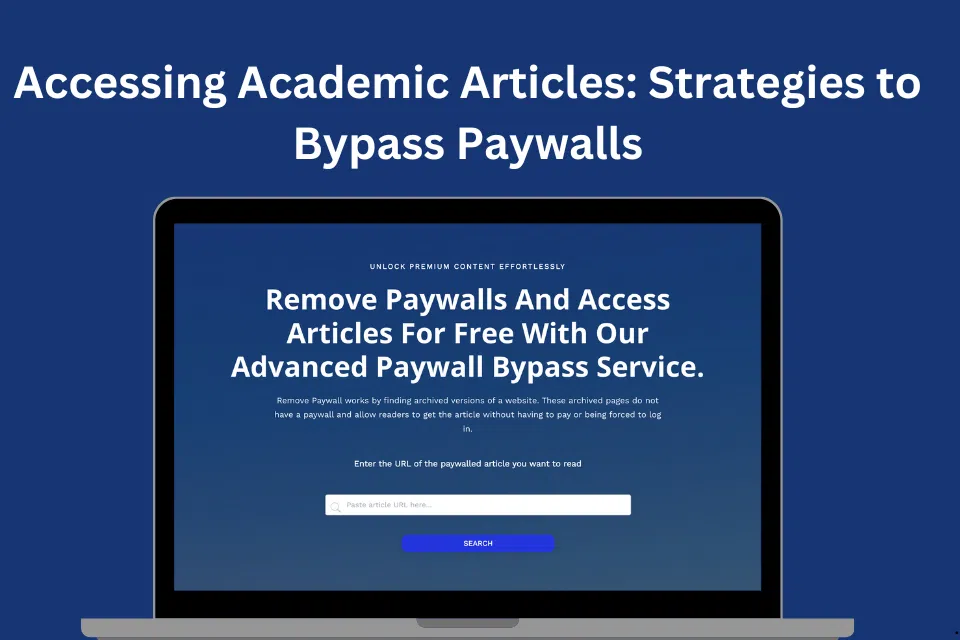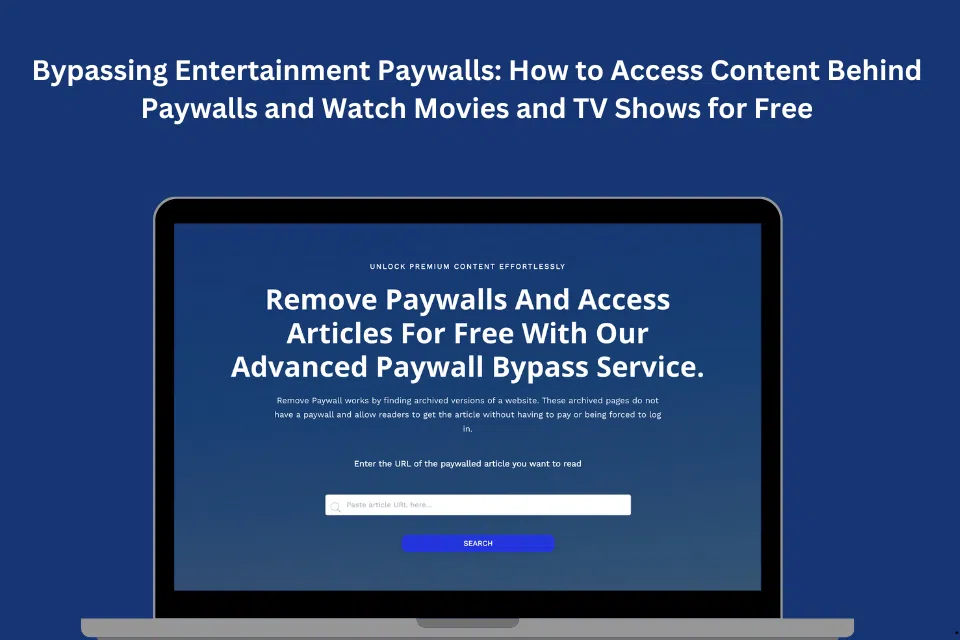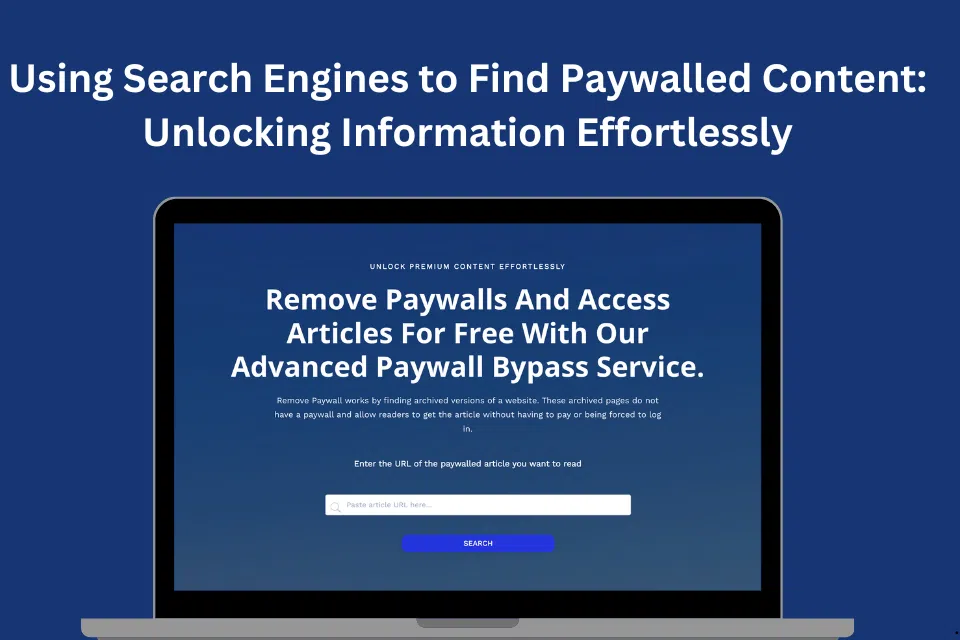Navigating the world of academic research can be daunting, especially when many crucial resources are behind paywalls. This comprehensive guide will show you various legal and ethical ways to access academic articles without having to pay for subscriptions or individual papers.
How to Read Academic Articles Behind Paywall
Institutional Access: If you’re affiliated with an educational institution, you might already have free access to a plethora of academic journals through your library. Most universities and colleges subscribe to expensive databases and provide free access to students and faculty. Log in through your institution’s portal or library website to access these resources directly.
Google Scholar: Google Scholar is an invaluable tool for finding academic articles. Often, you can find links to free PDFs or versions available on university repositories directly in the search results. Just enter the title of the paper in Google Scholar, and it might lead you to free versions hosted outside the traditional paywalls. For more tips on using digital tools to your advantage, check out our article on Using Browser Extensions to Bypass Paywalls.
Interlibrary Loan: Don’t overlook the power of an interlibrary loan (ILL). If your institution’s library doesn’t have a subscription to a needed journal, they can often borrow it from another library. This is particularly useful for accessing articles you need for your research.
How to Bypass Academic Paywalls
Browser Extensions: Tools like Unpaywall and Open Access Button can automatically search for legally available copies of articles as you browse. They work by scanning databases and repositories for any free versions of the article, providing you instant access. These extensions are indispensable tools for researchers and can be learned more about in our guide Using Browser Extensions to Bypass Paywalls.
ResearchGate and Academia.edu: Many researchers upload their papers to platforms like ResearchGate and Academia.edu, where the articles can be accessed for free. You can often request a copy directly from the authors if it’s not readily available, fostering both access and academic collaboration.
Email the Author: Most academic authors are happy to share a PDF of their publications upon request. Finding the author’s contact information on the publication or university webpage and sending a courteous email can often get you access to the paper you need.
Preprint Repositories: Preprints are versions of academic papers made available before they have been peer-reviewed and published in journals. Check out repositories like arXiv, bioRxiv, or SSRN to access these documents for free. Preprints can be a goldmine, especially in fast-evolving fields.
Conclusion
While paywalls can pose significant barriers to accessing academic literature, the various tools and methods available make it possible to obtain much of what you need without direct costs. Always consider the ethical implications of how you access materials and support open access initiatives whenever possible.
For more detailed strategies on accessing content, including various types of paywalls, explore our extensive resource Effective Strategies to Access Restricted Content, which offers insights into navigating these barriers more broadly.
By employing these strategies, you can expand your research capabilities and ensure you have access to necessary academic resources. Remember, supporting open access where possible benefits the entire academic community, promoting a free exchange of knowledge and information.





